The 5 Biggest Misconceptions About INFJs
INFJs are one of the most talked-about and written about personality types on the internet. Regarded as the rarest personality type, surprisingly they seem to have more articles dedicated to them than do any of the other types.
INFJs are supposed to make up a mere 2.3% of the population, but if you run a survey in most groups, a surprising number people there will have been typed as INFJ. It gets even more confusing when you read articles about INFJs. If you look through a variety of online articles about INFJs, you’ll see that they are basically a combination of every other personality type! I myself mistyped as an INFJ for many years. Why does this happen so much? I had a sneaking suspicion as to why, but I decided to experiment.
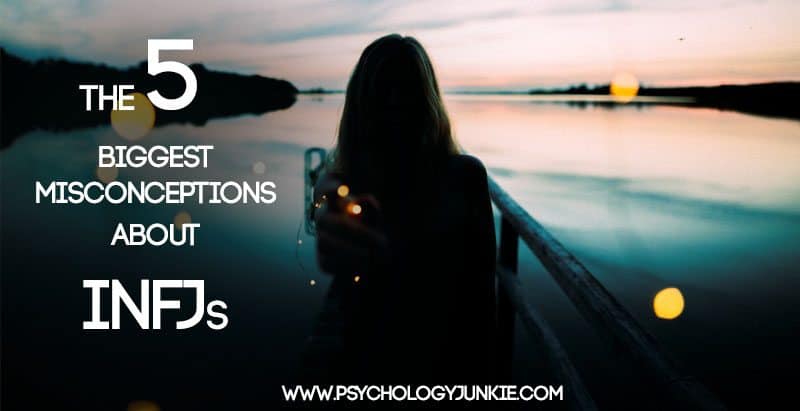
I asked an ESTJ, two ESFJs, two ISFJs, an INFP, two ISFPs, and two ENTPs to take two popular free online tests. I didn’t tell them why I wanted them to do this, just that I wanted to see if they got the same result as they did through the official MBTI®. They all got an INFJ result, except for one of the ENTPs who got an ENFP result. These slapped together online indicators are creating an abundance of mistyped people who are then writing about the INFJ type from their own perspective (which may indeed be the perspective of another personality type). As a result, many misconceptions abound about INFJs and I’m hoping today’s article can help to clear some of them up.
Not sure what your personality type is? Take our new personality questionnaire here. Or you can take the official MBTI® here.
Table of contents
Estimated reading time: 9 minutes
Misconception #1 – INFJs are Extremely Sensitive and Emotionally Intense
One thing that seems to be largely ignored in the personality community is that INFJs are intuitives first and feelers second. For the INFJ, the air they live and breathe is intuition. Understanding background processes, deciphering future implications, or reflecting on patterns and possibilities are things that they naturally gravitate towards. INFJs can certainly spend time dwelling on their own emotions and they can be sensitive, but it’s more frequent among IxFP personality types. INFJs use a mental process called Extraverted Feeling, and this function is more concerned with analyzing outer emotions than inner ones. As a result, INFJs may struggle when trying to sift through their own emotions.
Blogger Heidi Priebe describes it well when she says, “Because so many IxFP types misidentify as INFJs, INFJs often develop a reputation for being incredibly emotional dreamers – when in reality, they’re much more intellectual and discerning than they are emotional and imaginative.” See more of Heidi’s article here.
Can INFJs be emotional and sensitive? Yes. All types can be, but it’s generally not their main focus.
Sources: Psychological Types (The Collected Works of C. G. Jung, Vol. 6) (Bollingen Series XX)
My True Type: Clarifying Your Personality Type, Preferences & Functions
How Mistypes Have Warped the Descriptions of Each MBTI Type
Types who are more emotionally in-tune with themselves: INFPs and ISFPs
Misconception #2 – INFJs are Extremely Detail-Oriented
I see a lot of INFJ memes and articles that talk about how they are so detail conscious. They “see everything” apparently. I’ve heard people talk about how INFJs have to have their houses neatly in order and they notice every little thing that is out of place.
I have to respectfully disagree.
INFJs are usually very unaware of the concrete details of their environment. Because INFJs have inferior sensing they usually gloss over details unless they pertain to people or the big picture. In general the details of life aren’t what interest INFJs as much as meanings and possibilities. INFJs tend to take in an overall impression of the atmosphere around them, but can be very blind to the details of their environment.
“Dealing with details, especially in an unfamiliar environment, can trigger inferior Extraverted Sensing (Se) in Introverted Intuitive types. In fact, these types frequently mention that feeling overwhelmed by details often provokes characteristic inferior function reactions.
– Naomi Quenk, Was That Really Me?: How Everyday Stress Brings Out Our Hidden Personality
Sources:
The MBTI® Manual – A Guide to the Development and Use of the Myers-Briggs Type Indciator® Instrument
Was That Really Me?: How Everyday Stress Brings Out Our Hidden Personality
Types who are more detail-conscious: ISFJs, ESFJs, ISFPs
Misconception #3 – INFJs are Ambiverts
Because INFJs use Extraverted Feeling as their auxiliary function, they often get classified as ambiverts more than introverts. In social settings they can seem warm and gregarious. This is partially because they crave harmonious environments and value tact and overall good feelings. Awkward silences can make them feel like the harmony has been disrupted and they may appear more talkative than usual.
But INFJs are indeed true introverts.
Carl Jung himself said of INJs, “As their main activity is directed inwards, nothing is outwardly visible but reserve, secretiveness…uncertainty, and an apparent groundless embarrassment…When anything does come to the surface, it is generally an indirect manifestation of the inferior and relatively unconscious functions…Accordingly they are mostly underestimated, or at least misunderstood.”
“They (INFJs) prefer time away from external stimulation and mundane details in order to access their rich internal process.”
– Dario Nardi
While auxiliary feeling does allow INFJs to engage socially with a certain adaptability and awareness, they definitely need a lot of alone time so they can allow their Intuition to process and synthesize the information they’ve picked up throughout the day.
Sources: Psychological Types (The Collected Works of C. G. Jung, Vol. 6) (Bollingen Series XX)
Gifts Differing: Understanding Personality Type
Misconception #4 – INFJs Are Psychic
INFJs are masters of pattern-recognition and can easily be misconstrued as having some kind of “magical” foresight. The truth is much more technical.
INFJs gather copious amounts of information via their inferior function, Extraverted Sensation (or “Se” for short). Se is highly aware of concrete details and activity going on in the environment. However, unlike ESxPs who are Se-dominant, INJs don’t instantly react to or identify this information. Instead, they collect all this sensory data in a jumble in their mind. Their intuition works to synthesize this information, along with existing subconscious information, as if it’s assembling a puzzle or finding a way through a maze to a hidden insight. The INFJ then gets an epiphany or revelation about what is happening and how certain events may unfold. They can easily sense “the brewing storm”, but it’s because they are constantly running this intuitive process in their mind, piecing together clues.
“Once finished, Ni generates an impression that seems to come out of “nowhere.” But the fact is that the intuition did not come out of nowhere, but from a synthesis of sensory data gathered from the immediate environment combined with information from the INJ’s own psyche.”
– Dr. A.J. Drenth, Introverted Intuition
Sources: My True Type: Clarifying Your Personality Type, Preferences & Functions
Psychological Types (The Collected Works of C. G. Jung, Vol. 6) (Bollingen Series XX)
Neuroscience of Personality: Brain Savvy Insights for All Types of People
Misconception #5 – INFJs Know You Better Than You Know Yourself
No….no, no, no, no, no. This is why people call INFJs “special snowflakes” and find articles about them annoying and superior sounding. INFJs are gifted at picking up on patterns in human behavior, and they might be able to tell you (if you ask) which steps could lead in different directions. This doesn’t mean they know your entire past, history, experiences, or what made you who you are. They may be able to understand your emotional state before you blatantly spell it out, but that doesn’t mean they’re all empaths. To say something as incredibly arrogant as “I know you better than you know yourself” is insulting and belittling and certainly not kind or intelligent. INFJs, like anyone, can be duped or wrong.
Source: Common sense
The INFJ personality type is unique and wonderful in so many ways. But so are all fifteen other personality types. I hope this article has cleared up some of the misconceptions…what do you think? Let me know your thoughts in the comments!
Find out more about your personality type in our eBooks, Discovering You: Unlocking the Power of Personality Type or The INFJ – Understanding the Mystic. You can also connect with me via Facebook, Instagram, or Twitter!
This article contains affiliate links. I only recommend products I truly believe in.
Like this article? Then you’ll enjoy these!
The Four Reasons INFJs Struggle with Loneliness
The Top 7 Gift Ideas for INFJs
Are You an INFJ or an INFP? Clarifying the Most Common Mistype
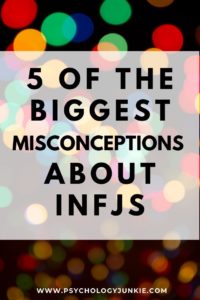
Get Your Free INFJ eBook
As a thank you for subscribing to my newsletter I will send you this free eBook PACKED with self-care tips, creativity hacks, and more! You'll also get a 3-day email course for understanding your personality type better!


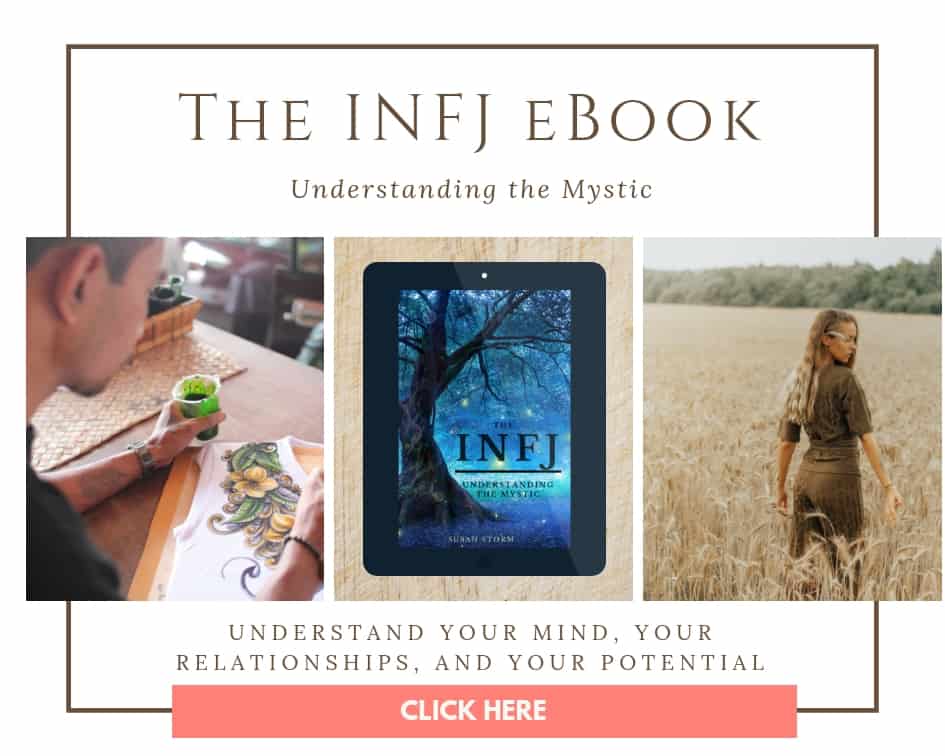
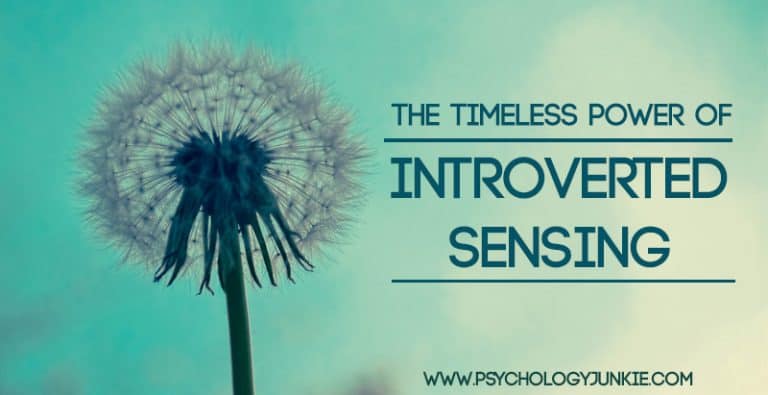
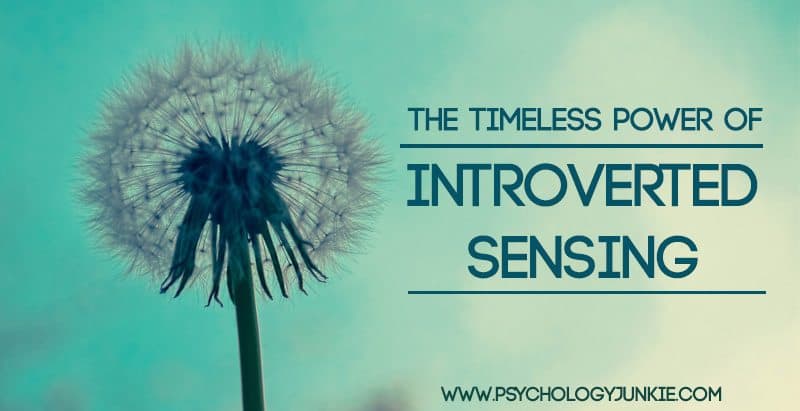
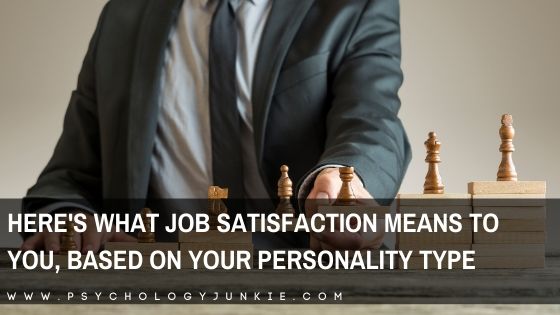
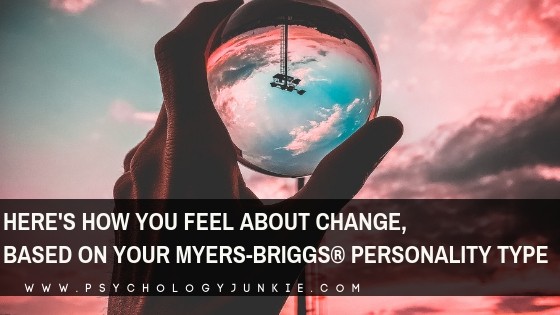

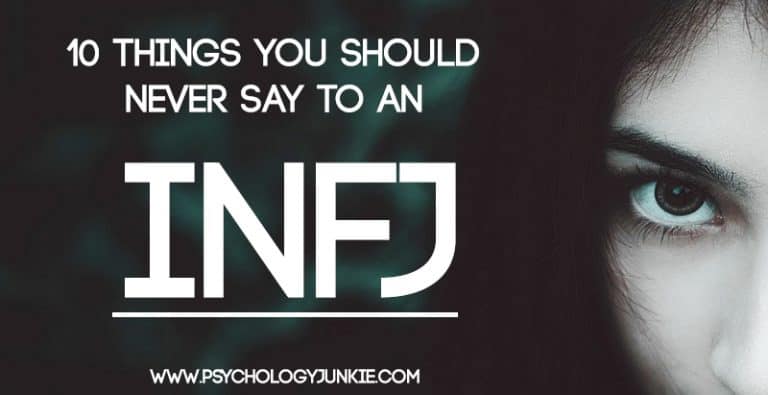
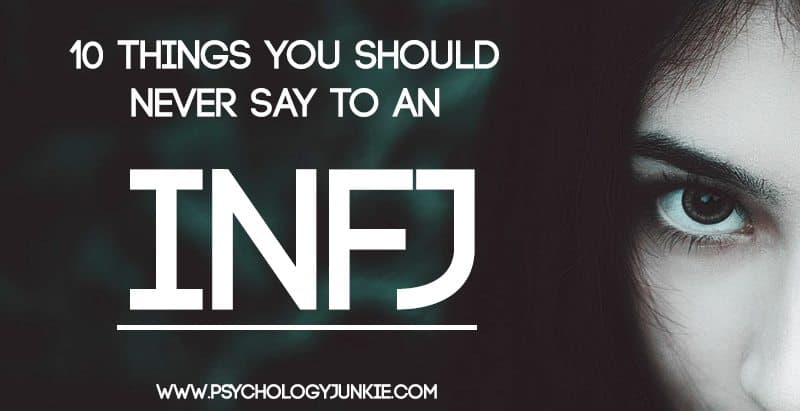
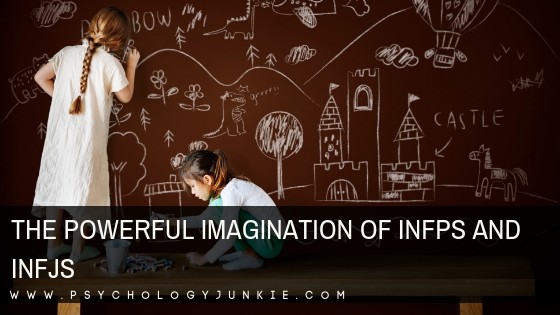
Frankly, I am not happy to have recently discovered that I am in fact an INFJ.
I think that many theorist make it sound more glamorous than it actually is. My life experience has for the most part been a lonely one. I’ve always felt admired even adored but never understood, never mind the fact that I could never understand myself.
Up until now, I am still unable to be vulnerable with another. This has failed me in love, romance and I can only hope to ever realise a deep connection with a significant other. And so, these, at my ripe age are still dreams.
Me too. I feel underestimated and like I am overlooked for opportunities constantly. I feel that people like and love me “for me” but not for what I bring to the table and want to contribute. It all boils down to being misunderstood. I don’t feel “lonely” as much as I’m beginning to feel like the path that I wanted for myself isn’t meant for me.
I was upset too. It was like I secured my inability to end the feeling of being different. Thanks for sharing.
I LOL’d at “ Source: Common sense”. ????
That had me rolling. I was like, yup. This an INFJ
I’m INFJ,but I’m happy,because I finally found my true love.
Of course,I have my ‘dark’ side,but it’s just a penchant. I like that side,but it’s often can become a way too dark even for myself..
Speak for yourself I’m a empath and I know how to heal people
Thank you for this article!
I’ve been working on proving myself on being INFJ after getting typed INTP quite frequently, then at other times ISFJ and learning that I was typed “upside down” or in reverse. I don’t want to be special, don’t think that I am, and wouldn’t consider myself a psychic or empath. This article has helped me in my quest for reassurance that I am understanding functions and seeing them at work in myself and others.
Good grief Susan. You need a better grasp of statistics. Or rather, basic math. Let’s review.
You claim that “But if you read much about type, or if you do know an actual INFJ (which is statistically unlikely) they are very true introverts by nature.” You also claim that “They’re supposed to make up a mere 1% of the population.”
Do you know what 1% means? It means 1 in 100. In this case, it means that 1 in 100 people will be INFJs. Tell me, have you met more than 100 people in your lifetime? And how many people do imagine are on the internet? I’m betting more than 100. So, given that most people do not live under rocks, it is actually statistically *very* likely that most people have met many INFJs. Stop trying to make yourself feel special. Statistically, it looks ridiculous.
Honestly, I spent my whole life trying to fit in, but it comes off as awkward and weird, I was neglected, verbally and physically abused by my biological parents, now I am in a foster home. I was and still am very suicidal, but I remembered one thing that made me feel accepted, “Whether you live or die. At the end, the most important thing is if you’ve found peace.” I now use my logical and strategic side to cover up my innermost emotions…